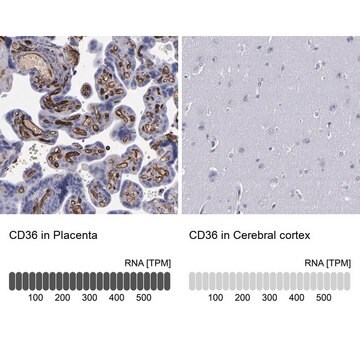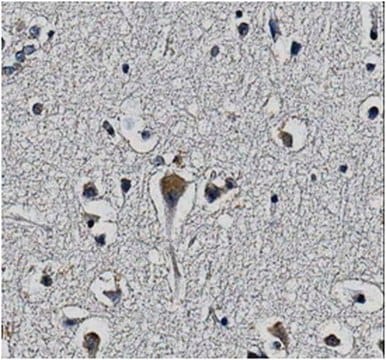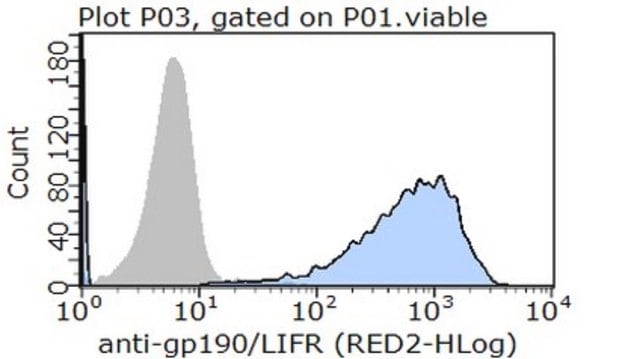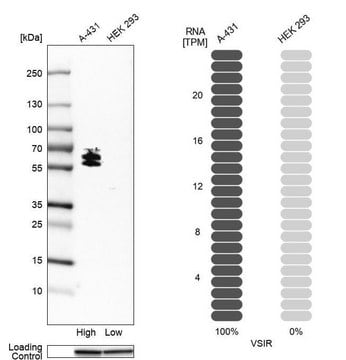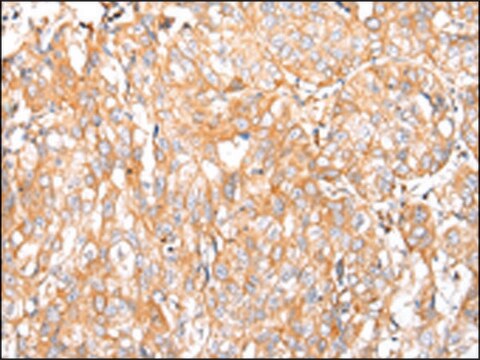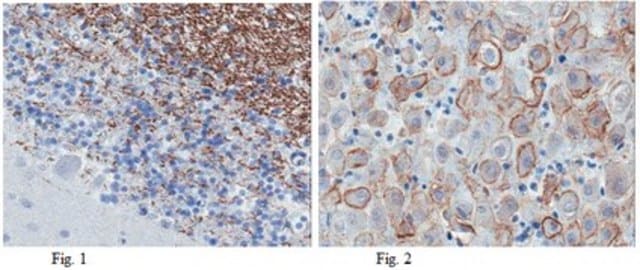MABS1164
Anti-Nucleobindin-2/Nestafin-1 Antibody, clone 3B3.1
clone 3B3.1, from mouse
Synonym(s):
Nucleobindin-2, Nestafin-1, DNA-binding protein NEFA, Prepronesfatin, Pronesfatin
About This Item
WB
western blot: suitable
Recommended Products
biological source
mouse
Quality Level
antibody form
purified antibody
antibody product type
primary antibodies
clone
3B3.1, monoclonal
species reactivity
human, mouse, rat
technique(s)
immunohistochemistry: suitable (paraffin)
western blot: suitable
isotype
IgG1κ
NCBI accession no.
UniProt accession no.
target post-translational modification
unmodified
Gene Information
rat ... Nucb2(59295)
General description
Specificity
Immunogen
Application
Signaling
Metabolic Hormones & Receptors
Quality
Western Blotting Analysis: 0.5 µg/mL of this antibody detected nucleobindin-2 in 10 µg of mouse liver tissue lysate.
Target description
Physical form
Storage and Stability
Other Notes
Disclaimer
Not finding the right product?
Try our Product Selector Tool.
Storage Class Code
12 - Non Combustible Liquids
WGK
WGK 1
Flash Point(F)
Not applicable
Flash Point(C)
Not applicable
Certificates of Analysis (COA)
Search for Certificates of Analysis (COA) by entering the products Lot/Batch Number. Lot and Batch Numbers can be found on a product’s label following the words ‘Lot’ or ‘Batch’.
Already Own This Product?
Find documentation for the products that you have recently purchased in the Document Library.
Our team of scientists has experience in all areas of research including Life Science, Material Science, Chemical Synthesis, Chromatography, Analytical and many others.
Contact Technical Service
